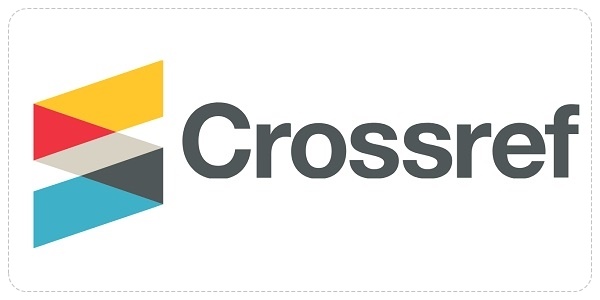Knowledge Capture in the Field of Curriculum Development in the Format of Digital Media
Abstract
With the massive flow of information obtained easily today, knowledge is one of the essential assets that must be maintained in an organization. In this digital era, books are not the only source that can be used as an asset. There are so many media applied to spread the knowledge held by experts in higher education. This study aims to document each lecturer's knowledge (knowledge capture), especially lecturers who have curriculum development expertise, to preserve their knowledge to be used by all students and even the broader community in the future online. The research used the descriptive method. The subjects are curriculum expert lecturers, learning media expert lecturers, students, and education practitioners. Based on the research results in conducting a needs analysis, data obtained that in the context of knowledge transfer in an organization or scientific field, the knowledge capture process becomes an essential part of storing knowledge in the long term. The steps taken to manage knowledge well need to be carried out through stages 1) identifying and collecting knowledge, 2) capturing and storing knowledge, 3) transferring and sharing knowledge, 4) creating a knowledge portal, and forming a dedicated team in maintaining the knowledge store.
Keywords
Full Text:
PDFReferences
Addis, M. (2016). Tacit and explicit knowledge in construction management. Construction management and economics, 34(7-8), 439-445.
Agarwal, A. (2017). Knowing "knowledge" and "to know": An overview of concepts. International journal of research granthaalayah, 5(11), 86-94.
Agustini, S.P & Wahyudi, M. (2015). Management system pada divisi lalu lintas angkutan dihubkominfo kota pontianak menggunakan spesific action dan pendekatan after action review berbasis web dan mobile application. Jurnal khatulistiwa informatika, 3(1), 82-94.
Alshumaimeri, Y. A. (2022). Educational context: The factor for a successful change. Online Submission, 9(1), 51-57.
Alsubaie, M. A. (2016). Curriculum development: Teacher involvement in curriculum development. Journal of Education and Practice, 7(9), 106-107.
Anagnostakis, Ritchie, J., Lim, T., Sivanathan, A., Dewar, R., Sung, R., ... & Carozza, L. (2016). Knowledge capture in CMM inspection planning: Barriers and challenges. Procedia CIRP, 52(2016), 216-221.
Asrar-ul-Haq, M., & Anwar, S. (2016). A systematic review of knowledge management and knowledge sharing: Trends, issues, and challenges. Cogent Business & Management, 3(1127744), 1-18.
Bachmann, C., Pettit, J., & Rosenbaum, M. (2022). Developing communication curricula in healthcare education: An evidence-based guide. Patient Education and Counseling, 105(7), 2320-2327.
Bolisani, E., & Scarso, E. (2014). The place of communities of practice in knowledge management studies: A critical review. Journal of knowledge management, 18(2), 366-381.
Constantiou, I. D., & Kallinikos, J. (2015). New games, new rules: Big data and the changing context of strategy. Journal of Information Technology, 30(1), 44-57.
Crompton, H., Bernacki, M., & Greene, J. A. (2020). Psychological foundations of emerging technologies for teaching and learning in higher education. Current Opinion in Psychology, 36, 101-105.
Darmadi, H. (2018). Educational management based on local wisdom. Journal of Education, Teaching and Learning, 3(1), 135-145.
Davies, M. (2015). Knowledge–Explicit, implicit and tacit: Philosophical aspects. International encyclopedia of the social & behavioral sciences, 13(2), 74-90.
Del Giudice, M., & Della Peruta, M. R. (2016). The impact of IT-based knowledge management systems on internal venturing and innovation: A structural equation modeling approach to corporate performance. Journal of Knowledge Management, 20(3), 484-498.
Delugach, H. S., Etzkorn, L. H., Carpenter, S., & Utley, D. (2016). A knowledge capture approach for directly acquiring team mental models. International Journal of Human-Computer Studies, 96, 12-21.
Feller, J., Parhankangas, A., Smeds, R., & Jaatinen, M. (2013). How companies learn to collaborate: Emergence of improved inter-organizational processes in R&D alliances. Organization Studies, 34(3), 313-343.
Ferreira, J. J., Fernandes, C. I., Guo, Y., & Rammal, H. G. (2022). Knowledge worker mobility and knowledge management in MNEs: A bibliometric analysis and research agenda. Journal of Business Research, 142, 464-475.
Goffin, K., Koners, U., Baxter, D., & Van der Hoven, C. (2010). Managing lessons learned and tacit knowledge in new product development. Research-Technology Management, 53(4), 39-51.
Haradhan, M. (2016). Knowledge is an essential element at present world. International Journal of Publication and Social Studies Munich Personal RePEc Archive (MPRA), 1(1), 31-55.
Herbig, B., & Müller, A. (2014). Implicit knowledge and work performance. International handbook of research in professional and practice-based learning, 781-806.
Herbst, A. S. (2017). Capturing knowledge from lessons learned at the work package level in project engineering teams. Journal of knowledge management, 21(4), 765-778.
Johnson, T. L., Fletcher, S. R., Baker, W., & Charles, R. L. (2019). How and why we need to capture tacit knowledge in manufacturing: Case studies of visual inspection. Applied Ergonomics, 74(2019), 1–9.
Kartika, T. (2016). Verbal communication culture and local wisdom: The value civilization of Indonesia nation. Lingua Cultura, 10(2), 89-93.
Khalili, S. (2018). Knowledge creation essentials in the data based forming world. International Journal of Modern Engineering Technologies, 1(1), 1-14.
Kingston, J. K. (2012). Tacit knowledge: Capture, sharing, and unwritten assumptions. Journal of Knowledge Management Practice, 13(3), 533-545.
Laperrière, A., & Spence, M. (2015). Enacting international opportunities: The role of organizational learning in knowledge-intensive business services. Journal of International Entrepreneurship, 13(3), 212-241.
Marschark, M., Shaver, D. M., Nagle, K. M., & Newman, L. A. (2015). Predicting the academic achievement of deaf and hard-of-hearing students from individual, household, communication, and educational factors. Exceptional children, 81(3), 350-369.
McNeil, J. D. (2006). Contemporary curriculum in thought and action. Hoboken, NJ: John Wiley & Sons, Inc.
Nickols, F. (2013). The tacit and explicit nature of knowledge: The knowledge in knowledge management. In The knowledge management yearbook 2000-2001 (pp. 12-21). Routledge.
Nkyabonaki, J. (2013). The space of politics in Tanzanias Curriculum. Scholarly Journal of Scientific Research and Essay (SJSRE), 2(7), 109-117.
Nugroho, M. A. (2018). The effects of collaborative cultures and knowledge sharing on organizational learning. Journal of Organizational Change Management, 31(5), 1138-1152.
Panahi, S., Watson, J., & Partridge, H. (2013). Towards tacit knowledge sharing over social web tools. Journal of Knowledge Management, 17(3), 379-397.
Papa, A., Santoro, G., Tirabeni, L., & Monge, F. (2018). Social media as tool for facilitating knowledge creation and innovation in small and medium enterprises. Baltic Journal of Management, 13(3), 329-344.
Rochgiyanti, M., & Susanto, H. (2017, November). Transformation of wetland local wisdom values on activities of swamp buffalo breeding in social science learning practice. In 1st International Conference on Social Sciences Education-" Multicultural Transformation in Education, Social Sciences and Wetland Environment"(ICSSE 2017) (pp. 272-276). Atlantis Press.
Rohmiyati, Y. (2019). Faktor-kaktor pembentuk tacit knowledge pada individu. ANUVA, 3(2): 185-189.
Spraggon, M., & Bodolica, V. (2017). Collective tacit knowledge generation through play: Integrating socially distributed cognition and transactive memory systems. Management Decision, 55(1), 119-135.
Twum-Darko, M., & Harker, L. A. L. (2015). Factors influencing knowledge sharing amongst higher education academics at a university in South Africa. Journal of Corporate Ownership and Control, 12(2), 280-292.
Walker, A. M. (2017). Tacit knowledge. European Journal of Epidemiology, 32(4), 261-267.
Wang, Z., Wang, N., & Liang, H. (2014). Knowledge sharing, intellectual capital and firm performance. Management Decision, 52(2), 230-258.
DOI: https://doi.org/10.17509/pdgia.v21i2.58612
Refbacks
- There are currently no refbacks.
INDEXED BY

This work is licensed under a Creative Commons Attribution-ShareAlike 4.0 International License
















